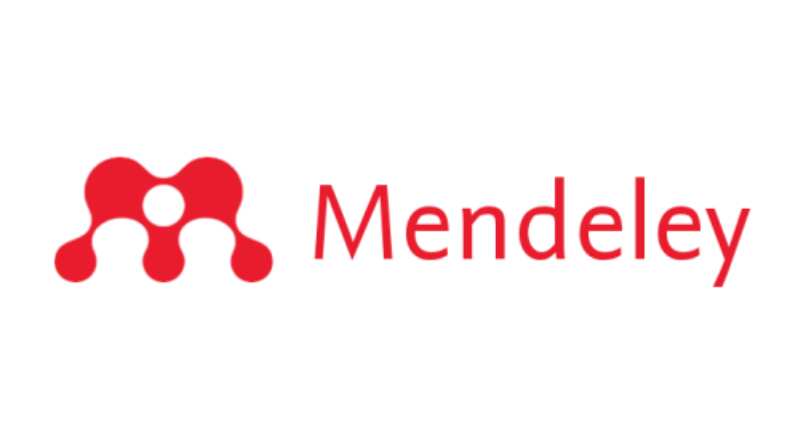Employee Privacy dan Hostility Between Teams terhadap Employee Performance
Abstract
This study aimed to identify factors influencing the lack of privacy and the prevalence of gossip in the Kantor Bank Aceh Syariah Cabang Blangpidie. The Structural Equation Modeling (SEM) with Partial Least Squares (PLS) approach was used to analyze data from 103 respondents using The Durkee Hostility Inventory (DHI) as the measurement tool. The results revealed that two constructs, Guilt (feelings of guilt) and Negativism (tendency for negative thinking or rejection), significantly influenced the levels of privacy violation and gossip in the workplace. These findings offer valuable guidance to management in developing more effective strategies to foster a harmonious work environment and mitigate the negative impact of privacy violation and gossip in the workplace.
References
Abbas, M., Raja, U., Darr, W., & Bouckenooghe, D. (2014). Combined Effects of Perceived Politics and Psychological Capital on Job Satisfaction, Turnover Intentions, and Performance. Journal of Management, 40(7), 1813–1830. https://doi.org/10.1177/0149206312455243
Anggraeni, E. A. (2021). PENGARUH PERUNDUNGAN DI TEMPAT KERJA TERHADAP KETERIKATAN KERJA DENGAN KETIDAKAMANAN KERJA SEBAGAI VARIABEL PEMEDIASI STUDI PADA PEKERJA PEREMPUAN NON MANAJERIAL DI INDUSTRI PERBANKAN.
Astuti, N. P., Arif, E., & Ningroem, E. R. (2019). Conflik in Organization. Jispo, 9(1), 297–313.
Bhave, D. P., Teo, L. H., & Dalal, R. S. (2020). Privacy at Work: A Review and a Research Agenda for a Contested Terrain. Journal of Management, 46(1), 127–164. https://doi.org/10.1177/0149206319878254
Caesens, G., Stinglhamber, F., Demoulin, S., De Wilde, M., & Mierop, A. (2019). Perceived organizational support and workplace conflict: The mediating role of failure-related trust. Frontiers in Psychology, 9(JAN), 1–13. https://doi.org/10.3389/fpsyg.2018.02704
Cai, D. A., Fink, E. L., & Walker, C. B. (2021). Robert r. Blake, with recognition of jane s. Mouton. Negotiation and Conflict Management Research, 14(1), 51–59. https://doi.org/10.1111/ncmr.12151
Danielsson, C. B., Bodin, L., Wulff, C., & Theorell, T. (2015). The relation between office type and workplace conflict: A gender and noise perspective. Journal of Environmental Psychology, 42, 161–171. https://doi.org/10.1016/j.jenvp.2015.04.004
DeVoe, S. E., & Iyengar, S. S. (2004). Manager’s theories of subordinates: A cross-cultural examination of manager perceptions of motivation and appraisal of performance. Organizational Behavior and Human Decision Processes, 93(1), 47–61. https://doi.org/10.1016/j.obhdp.2003.09.001
Fernandez, G. C. (2020). Kajian pustaka: Perundungan berbasis teknologi di tempat kerja. Jurnal Psikologi Tabularasa, 15(2), 45–53. https://doi.org/10.26905/jpt.v15i2.5329
Foy, T., Dwyer, R. J., Nafarrete, R., Hammoud, M. S. S., & Rockett, P. (2019). Managing job performance, social support and work-life conflict to reduce workplace stress. International Journal of Productivity and Performance Management, 68(6), 1018–1041. https://doi.org/10.1108/IJPPM-03-2017-0061
García-León, A., Reyes, G. A., Vila, J., Pérez, N., Robles, H., & Ramos, M. M. (2002). The Aggression Questionnaire: A validation study in student samples. The Spanish Journal of Psychology, 5(1), 45–53. https://doi.org/10.1017/s1138741600005825
Greenberg, E. S., Grunberg, L., & Daniel, K. (1996). Industrial work and political participation: Beyond “simple spillover.” Political Research Quarterly, 49(2), 305–330. https://doi.org/10.1177/106591299604900204
Kay, A. A., & Skarlicki, D. P. (2020). Cultivating a conflict-positive workplace: How mindfulness facilitates constructive conflict management. Organizational Behavior and Human Decision Processes, 159(February), 8–20. https://doi.org/10.1016/j.obhdp.2020.02.005
Madalina, O. (2016). Conflict Management, a New Challenge. Procedia Economics and Finance, 39(November 2015), 807–814. https://doi.org/10.1016/s2212-5671(16)30255-6
Naseer, S., Raja, U., Syed, F., & Bouckenooghe, D. (2018). Combined effects of workplace bullying and perceived organizational support on employee behaviors: Does resource availability help? Anxiety, Stress and Coping, 31(6), 654–668. https://doi.org/10.1080/10615806.2018.1521516
Nauman, S., Malik, S. Z., & Jalil, F. (2019). How workplace bullying jeopardizes employees’ life satisfaction: The roles of job anxiety and insomnia. Frontiers in Psychology, 10(OCT). https://doi.org/10.3389/fpsyg.2019.02292
Overton, A. R., & Lowry, A. C. (2013). Conflict management: Difficult conversations with difficult people. Clinics in Colon and Rectal Surgery, 26(4), 259–264. https://doi.org/10.1055/s-0033-1356728
Qian, J., Wang, B., Han, Z., & Song, B. (2017). Ethical leadership, leader-member exchange and feedback seeking: A double-moderated mediation model of emotional intelligence and work-unit structure. Frontiers in Psychology, 8(JUL), 1–11. https://doi.org/10.3389/fpsyg.2017.01174
Ryumshina, L. (2015). Recognition by Russian Teachers of Students’ Aggressive Tendencies. Procedia - Social and Behavioral Sciences, 171, 790–794. https://doi.org/10.1016/j.sbspro.2015.01.193
Silviandari, I. A. (2018). Konflik Peran dan Perundungan (Bullying) di Tempat Kerja: Studi Meta-analisis. Mediapsi, 4(2), 58–67. https://doi.org/10.21776/ub.mps.2018.004.02.1
Siobhán, H.-C. (2019). Is Workplace Bullying in the Eye of the Beholder. Policy, Politics, and Nursing Practice, 20(2), 82–91. https://doi.org/10.1177/1527154419845411
Sunargo, S., & Hastuti, D. (2019). Mengatasi perilaku kerja kontraproduktif melalui peran integratif politik organisasional dan kecerdasan emosional pada era revolusi industri 4.0. Jurnal Paradigma Ekonomika, 14(2), 45–54. https://doi.org/10.22437/paradigma.v14i2.8961
Tabassi, A. A., Abdullah, A., & Bryde, D. J. (2019). Conflict Management, Team Coordination, and Performance Within Multicultural Temporary Projects: Evidence From the Construction Industry. Project Management Journal, 50(1), 101–114. https://doi.org/10.1177/8756972818818257
Tarafdar, M., Tu, Q., Ragu-Nathan, B. S., & Ragu-Nathan, T. S. (2007). The impact of technostress on role stress and productivity. Journal of Management Information Systems, 24(1), 301–328. https://doi.org/10.2753/MIS0742-1222240109
Tshitangoni, M., & Francis, J. (2017). Relevance of Traditional Leadership in Rural Community Development amidst Democratic Institutions in Southern Africa: A Critical Review. Student Tribes Tribals, 15(2), 70–83. https://doi.org/10.1080/0972639X.2017.1383557
Tu, Y., & Zhang, L. (2021). Relationship between Team Conflict and Performance in Green Enterprises: A Cross-Level Model Moderated by Leaders’ Political Skills. Complexity, 2021. https://doi.org/10.1155/2021/6635426
Van Hooser, J. P., Pekow, C., Nguyen, H. M., D’Urso, D. M., Kerner, S. E., & Thompson-Iritani, S. (2021). Caring for the Animal Caregiver—Occupational Health, Human-Animal Bond and Compassion Fatigue. Frontiers in Veterinary Science, 8(November), 1–10. https://doi.org/10.3389/fvets.2021.731003
Wang, N., & Wu, G. (2020). A Systematic Approach to Effective Conflict Management for Program. SAGE Open, 10(1). https://doi.org/10.1177/2158244019899055
Wartini, S. (2015). Strategi Manajemen Konflik Sebagai Upaya Meningkatkan Kinerja Teamwork Tenaga Kependidikan. Jurnal Manajemen Dan Organisasi, 6(1), Article 1. https://doi.org/10.29244/jmo.v6i1.12194
Zakia Surya, F., & Bakar Fahmi, A. (2022). Pengaruh Perundungan di Lingkungan Kerja terhadap Stres Kerja pada Karyawan Baru di Jakarta. Psikologika: Jurnal Pemikiran Dan Penelitian Psikologi, 27(1), 1–14. https://doi.org/10.20885/psikologika.vol27.iss1.art1
Zwiech, P. (2021). Perception of justice in performance appraisal: Empirical findings from enterprises from the West Pomeranian voivodship in Poland. Procedia Computer Science, 192, 4649–4657. https://doi.org/10.1016/j.procs.2021.09.243
Copyright (c) 2024 Yuliza Yuliza, Rusdi Rusdi, Hamdi Harmen, Muhammad Rahmat Hidayat

This work is licensed under a Creative Commons Attribution-ShareAlike 4.0 International License.




















